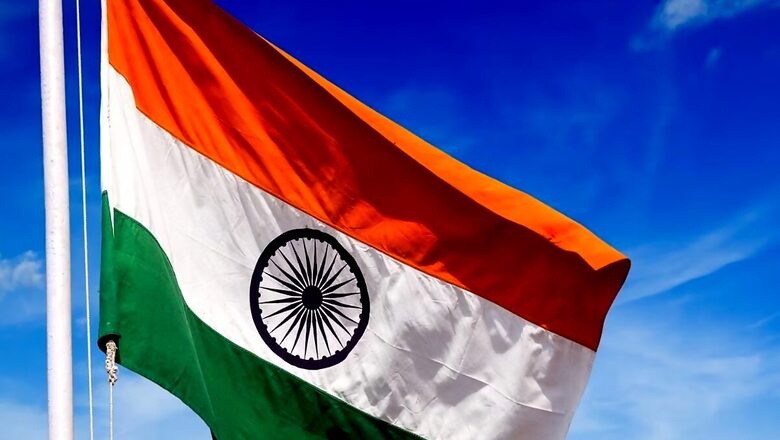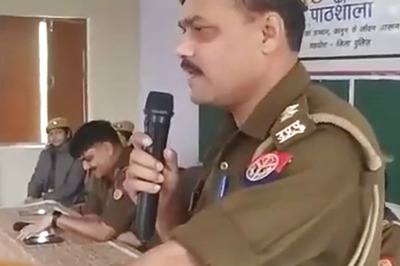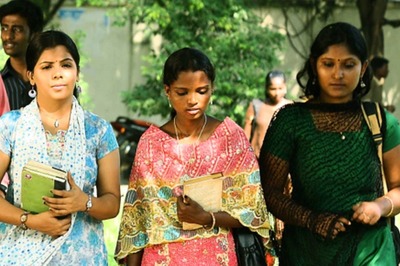
views
Independence Day speeches of former Prime Ministers Jawaharlal Nehru, Indira Gandhi, and Rajiv Gandhi, if analysed closely, bring out startling similarities.
- Repetitive: They were repetitive themes across multiple speeches without any new insight.
- No Responsibility: Instead of taking responsibility or ownership for their actions, these three frequently deflected blame elsewhere.
- No Inspiration: A country just coming out of centuries of colonial rule needed inspiration. Yet, rather than uplifting and inspiring the populace, their speeches came across as patronising, contrasting Indians unfavourably with people from more developed nations.
- Preaching Tone: The speeches talked down to Indians in a sermonising or preaching tone.
- No Mass Movements Launched: There was no mass movement that any of these leaders ever launched. This was such a glaring miss, especially after claiming the legacy of the freedom mass movement.
- No Report Card: None of the speeches ever offered a report card of the promises made in previous speeches.
This article covers some examples of speeches from Jawaharlal Nehru, Indira Gandhi, and Rajiv Gandhi that reflect these tendencies.
Jawaharlal Nehru
1. Repetitive Themes
1950, Inflation isn’t our fault—clearly, it’s the war in Korea: “The price rise of essential commodities is also a thing, there is a war in Korea and people have increased the prices of essential commodities here, what is the meaning of this.”
1959, 10 years in power—inflation’s a mess, but we’re making the nation great again: “We sometimes forget that we are engaged in doing great things, to make this country great again. You are facing problems even now, that of price rise. This isn’t in our total control yet but we will control it.”
Nehru frequently cited inflation as a major issue but never proposed concrete solutions, blaming external factors like the Korean War. His draconian 1955 Essential Commodities Act aimed at hoarding led to the bureaucratic exploitation of businesses. Despite years of complaints about black-marketing and hoarding, Nehru’s failure to address these issues was often attributed to the public, whom he condescended for encouraging illegal practices. In stark contrast, Prime Minister Narendra Modi tackled food security during the pandemic by providing free food grains to 80 crore people and has managed to keep inflation below 6%, with an average rate of 4.8%.
Narendra Modi elevates Independence Day speeches as the platform for crucial announcements. He identifies major problems and sets clear targets to address them, highlighting how even basic necessities for a dignified life have been lacking after 70 years of freedom.
Narendra Modi, 2016: “I want to talk about and which concerns the common man is inflation. It is true that the inflation rate had crossed 10% mark during the tenure of previous government. Due to our sustained efforts, we were able to keep it below 6 percent.”
Narendra Modi, 2019: “People have to struggle to get drinking water. Mothers and sisters have to travel 2, 3, 5 km carrying a load of water on their heads. A large part of their lives is spent in struggling for water. Therefore, this government has decided to emphasise upon a special task and that is, how to ensure availability of water in every house. How does every house get water, pure drinking water? And so I declare from the Red Fort today that in the days to come, we will take forward the ‘Jal-Jeevan’ Mission.”
Narendra Modi, 2022: “We all need to think how long we will be dependent on other people of the world. Can we outsource when our country needs food grains? When the country decided that we will meet our food requirements, did the country demonstrate it or not? Once we take a resolution, it is possible. And, therefore, ‘Aatmanirbhar Bharat’ becomes the responsibility of every citizen, every government and every unit of society. ‘Aatmanirbhar Bharat’ is not a government agenda or a government programme. This is a mass movement of society, which we have to take forward.”
2. Avoiding Accountability
1948, Announce the problem, offer no solution: “…inflation and rising prices and unemployment oppress the people.It is this war we have to fight, the war against economic crisis and to rehabilitate the disinherited.”
1950, Deflecting blame & being pompous: “But I would say again, this is independent India and we celebrate the anniversary of independent India. But with independence comes responsibility. The responsibility is not only of the government, but also of every independent individual and if you don’t understand that responsibility and then the people of India have not exactly understood the true meaning of independence.”
1950, Businessmen are crooks and Indians are money-minded selfish hoarders: “The other problem is that there are a lot of people in this country who are trying to make money from other people’s problems, be it a businessman or shop-owners they are hoarding food grains for their benefit so that they get huge price or maybe in a year or two when they need it they can bring it out.”
“You will say, it is a big talk, the same Jawahar Lal had said in the last two or three years that people who do such things should be given the strictest of punishments. A lot of such big talks happen, but when will actions be taken against these people? It is absolutely okay for you to question me on this and I am ashamed of myself on how we become so lackadaisical?”
1951, Blame people & escape responsibility: “We have some people in the country who have said things in their self-interest that harm the country. This is wrong and obviously every government should stop and suppress it. It’s possible that what the government should do with full vigor may not happen but it should be remembered that till the time there is support from general public it won’t happen, and then practices like black marketing grows. So we have to figure out ways to stop this. You may know that a new five-year plan has come out which is aimed at eradicating poverty, increasing produce. So that we generate more wealth and it reaches the general public.”
1958, Here’s to hoping ‘exploiters’ have a change of heart: “Even in this situation there are traders who are taking advantage of people instead of helping them in sharing their burden. Your complaints are valid. Those who are doing this and harming the country and its population, it can be their weakness. But those that are going against the country should think of serving her.”
3. Lack of Inspiration
1957, Pakistan – How can we even consider fighting our enemy? “Our neighbour is Pakistan, which is a part of us, part of our hearts and arms. How do we even think of fighting them? This is like harming ourselves. And if they are aggressive, they will harm themselves. This is a strange relationship between India and Pakistan. Strange relationship where there is sorrow and anger but ultimately that relationship is so close and for thousands of years that laws can’t eradicate it. And if something harms India, it will definitely harm Pakistan as well.”
1962, China – We gave friendship a shot, surprise, it didn’t work. Try not to panic! “We tried to be friendly with all countries and continue to do so. We succeeded also to some extent. But it’s unfortunate that our brothers at the borders do not have right intentions sometimes and speak about war. But we don’t have to panic, and get ourselves immobilized but maintain alertness and readiness.”
Nehru somehow thought the Chinese war was a win for India and didn’t even bother to honor the army’s sacrifices in his 1963 speech. Despite prior warnings, he claimed the attack was a surprise. His nepotism, including appointing his sister and a communist sympathiser, didn’t help either. His dismissive comments on Aksai Chin and refusal to act on Goa showed a spectacularly indifferent approach. PM Modi, unlike Nehru, actually pays tribute to soldiers and is fixing the border mess left behind.
Narendra Modi, 2020: “The whole country is full of zeal, driven by conviction and moving forward with unwavering devotion to protect India’s sovereignty. The world has seen what our brave jawans can do in Ladakh, and what the country can do to defend its resolve. Today, I pay obeisance to all the brave men and soldiers who sacrificed their lives for the motherland from the ramparts of the Red Fort.”
Despite Pakistan’s aggression from 1947-48 onward, Nehru seemed astonishingly naïve about Pakistan’s goal of India’s destruction. Nehru lost parts of J&K but still romanticised Pakistan. In sharp contrast, Narendra Modi avoids naming Pakistan in his Independence Day speeches, only referring to Pakistan-occupied Kashmir once. Unlike his predecessors, Modi has brought a clear-eyed perspective to handling Pakistan and doesn’t shy away from inspiring our bravehearts.
Narendra Modi, 2016: “I want to heartily thank the people of Balochistan, the people of Gilgit, the people of Pakistan-occupied Kashmir for having an expression of thankfulness.”
4. Condescending and Didactic Tone
1949, Lecturing & posturing people for ‘wasting’ food: “One of our most important problems today is that of growing more food. We must avoid wasting food at all costs. We must conserve our present resources with great care. We have to tighten our belts. If the cooperation of the people is forthcoming, we shall solve not only this problem but many others.”
“One of our most important problems today is that of growing more food. We must avoid wasting food at all costs. We must conserve our present resources with great care. We have to tighten our belts. If the cooperation of the people is forthcoming, we shall solve not only this problem but many others.”
1959, Indians hardly work! “Prosperous countries became so because of their hard work whether it’s Europe, America or any other Asian country. In India, we haven’t had the habit of working hard generally. It’s not our fault, these things can happen. But the fact is that we don’t work as hard as Europeans, Japanese, Chinese, Russians and perhaps Americans. Don’t think that they prospered due to some magic, it happened due to hard work and intelligence.”
1963, Fortunate that China’s attack shook Indians out of ‘complacency’: “All of a sudden, aggression was committed on our borders last year by a country which we had looked upon as a friend. This naturally shocked us and we had to pass through hardships and difficulties. This also had its good consequences, because we were shaken out of our complacency and once again a climate of preparedness and sacrifice was generated.”
5. Missing Call to Action and Vision Setting
1949, Asking a starving population to skip lavish feasts to prevent food wastage: “Those who waste food by organising feasts just to show off, they are doing a crime against the country. What could be more useless than someone among you or among us organises a feast and wastes food at a time when some people are going hungry. We have to tighten our belts….If the cooperation of the people is forthcoming, if we walk ahead together, we shall solve not only this problem but many others.”
6. No Report Card
1951, It takes time; we’re slow—deal with it! “We make big maps and plan to build roads for Rs 50 lakh or Rs 1 crore worth of work, and this is how the blueprints kept stacking in our offices. Files had big noting on them but those roads, and schools never got built or took a long time to get completed. This is how the government functions, slowly.”
Nehru often lamented that big plans were made but not implemented, attributing the problem to slow government processes and telling citizens they must take responsibility. The Nehru-Gandhi dynasty fostered a feudal system where ruling was seen as their divine right, erasing any culture of accountability. They encouraged a sense of entitlement among political families, many of whom, inspired by Nehru’s approach, perpetuated dynastic rule and undermined democracy. With a lack of adversarial media or social media scrutiny, the Nehru-Gandhi dynasty avoided accountability.
In contrast, PM Modi emphasises accountability and personal responsibility. He promises that his government will be judged by its actions, acknowledges improvements in tax filing, and credits the public for their role. Modi takes full responsibility for government performance, never blaming citizens, and regularly updates the public on scheme progress, pushing the bureaucracy to follow suit.
Narendra Modi, 2014: “Schemes have been made in the past also. There is no government which doesn’t make schemes. Every government does that. There is no government which doesn’t make announcements. Every government does that. There is no government which doesn’t light the inauguration lamps, doesn’t cut ribbons–every government does that. But the touchstone is whether we walk the talk or not. We have laid great stress upon a new work culture.”
Narendra Modi, 2014: “It’s not long since I have come from outside Delhi, but I give you an assurance that the people in the Government are very capable – from the peon to the Cabinet Secretary, everybody is capable, everybody has power, they have experience. I want to awaken that power, I want to unite that power and accelerate the pace of the welfare of the nation through that power and
I shall definitely do it.”
Narendra Modi, 2014: “Today, the country is moving ahead celebrating the festival of honesty. Till 2013, i.e. for the last 70 years, there were 4 crore people who were paying direct taxes. However, brothers and sisters, today this figure has increased to almost 6.75 crore. Look how far we have come from 3, 3.5 or 3.75 crore to 6.75 crore. Are not these glaring figures a true reflection of honesty? This is an example that the nation is treading the path of honesty. In the past 70 years, 70 lakh enterprises were included in the indirect tax net. However, in the last one year alone, after the introduction of GST, the figure has catapulted to one crore and 16 lakh.”
Indira Gandhi
1. Repetitive Themes
1971, Affects us all: “The price spiral affects all of us and it should be our endeavour that the prices of essential commodities remain at a reasonable level.”
1973, State the problem & give no solution: “Our country is suffering from some shortages. The prices have risen and have risen tremendously.”
1970, Justify price rise: “However, you have also to appreciate the fact that when a nation goes forward prices move up to a certain extent. Doubtless, it is our duty to ensure that the prices of essential commodities are stabilised and there is a balance between incomes and prices.”
1974, No solutions offered still: “The most important question today is that of rising prices and scarcity of essential commodities.”
1975, Thanks to Emergency, at least prices are down! “You have seen the impact these measures have had. The prices started falling, and we witnessed a new wave of discipline. The students who were not prepared to sit for their examinations took them voluntarily. The people in every walk of life also applied themselves to their tasks.”
2. Avoiding Accountability
1967, Inflation a global trend: “The people of India are faced with many other problems. There is the problem of rising prices. There is a demand for higher wages. This problem is not confined to India. The whole world is faced with the problem of rising prices and the demand for higher wages. It is a vicious circle of rising prices, higher rents, higher wages and again higher prices. It is our endeavour to break this vicious circle.”
1973, You people are the enablers! “We all feel annoyed when we hear of black-marketing and shortages, which the people are facing. Things are sold in the black-market because there are people who purchase them. If the people are not prepared to buy at a black-market price, the traders would not be able to sell them.”
1975, I failed because of you people! “Some people exploit the orders to their advantage, while some others are always busy preventing their implementation. All these things happen and this is the one main reason why we could not implement some of our major policies.”
1980, Bitter loser: “And the primary reason why we are facing indiscipline and selfishness is because we have veered away from the tested path in the last three years. We started lampooning our foundations and principles while looking for new paths. We didn’t find a new path but got scattered along many different ones. This has led to slowing us down.”
1983, Circumventing accountability and blaming people: “Unfortunately, this raises the question of corruption and I want to say this with sadness that while corruption exists, we can’t treat it like a ghost and say that since it is present, there could be more of it. Other countries have corruption too but we aren’t worried about them and we should work toward removing our worries. Whether it’s officials, politicians or an ordinary shopkeeper or others, we must think whether we are ready to sacrifice the society for our short-term gains.”
3. Lack of Inspiration
1968, Get disciplined on your own! “When we talk of indiscipline among workers, I would like to say that industrialists and moneyed businessmen cannot escape responsibility. They cannot ensure discipline if they continue to make big profits and draw fat salaries. I would appeal to them to give thought to this problem and find a solution.”
1975, Emergency is like the Independence moment, solved evils of society: “The present occasion is similar to the one when with great hopes free India’s flag was first unfurled, as you might recall, not here but at the India Gate in New Delhi. We had felt that a new opportunity had come our way. Soon after we were engaged in solving a number of problems; evils like indolence, corruption, inefficiency creeped in.”
1975, Democracy ‘cleansing’ via Emergency: “We were not happy to declare an emergency, but we had to under the compulsion of circumstances. But, every dark cloud has a silver lining. Stringent measures were taken just as bitter pills have to be administered to a patient in the interest of his health. We should use the opportunity to cleanse the political, economic and other aspects of national life, and bring some charm and freshness to it.“
1981, Didn’t choose me? Suffer now! “Hoarding, black marketing, profiteering, these things are still going on. And those people who are involved in these anti-social works had received some relaxations some years back and therefore we have not been able to catch them yet.”
Indira Gandhi saw the Emergency as a cure for democracy’s ills, even calling it a positive step. Her father, Nehru, set a troubling precedent by using the First Amendment to stifle free speech and misusing Article 356 to dismiss state governments. His autocratic tendencies were clear in his appointments of loyalists, including his sister, to key positions. Indira continued this trend by installing pliant judges and using her speeches more to enforce her vision of democracy than to inspire. In contrast, PM Modi views democracy as India’s greatest strength. He abolished the anti-democratic Article 370 to foster justice in J&K, showing a genuine commitment to democratic principles rather than undermining them.
Narendra Modi, 2017: “In New India, the biggest strength is democracy. But we have reduced our democracy to mere ballot boxes. However, democracy cannot be confined only to ballot boxes. Hence our resolve is to see to it that we have a democracy in New India, where people are not driven by the system, rather the system is driven by the people. Such a democracy should become the identity of New India and we want to move towards that direction.”
Narendra Modi, 2023: “India is a mother of democracy; India is also a model of diversity. There are several languages, several dialects, various costumes, and diversity. We have to move forward on the basis of all.”
4. Condescending and Didactic Tone
1971, Price rises? That’s because of your unscrupulous actions, not mine: Sometimes, when a commodity is in short supply, there is a rise in its price and one can understand it. But many times, when a particular item is taxed, other items which are in no way related to it also register a rise in prices. Who raises these prices and why? Obviously, they are the unscrupulous dealers.”
1974, You are defeatist & complacent! “Unfortunately, we are prone to lapsing into complacency when something good comes about. But when there is some difficulty, we all give up hope. Sometimes, it seems that the entire nation has adopted a defeatist attitude.”
1975, You do not know what freedom & democracy is! “Freedom is imperiled when we forget to understand the true meaning of freedom and of democracy and when we don’t realise where the interests of the nation lie.”
5. Missing Call to Action and Vision Setting
1974, Eat less & suffer! “Even so, the shortages are not unbearable. We may have to modify our habits, change traditional ways and may also have to suffer a bit. Once we accept this, it would not be beyond us to put up with the situation. The most dangerous thing would be to give up hope and to feel that nothing has been done or can be done.”
1974, Stop buying stuff! “Can’t our brothers and sisters refrain from buying things which are not available in the open market, but are available only in the black-market?”
1974, Grow your own food in pots and cans! “Can’t our other brothers and sisters grow vegetables in pots and cans if they have no land attached to their houses, keep their city clean, and help in eradicating evil practices prevalent in their neighbourhood?”
1981, Insensitive hectoring and blame game: “Government has a big responsibility. You have given us this responsibility by exercising your right to vote, but in democracy the common man also has equally big responsibility. Even if we stop a lot of unnecessary expenses, if people keep buying unnecessary things even at higher prices despite the fact that they don’t need it and don’t stop these things, the social environment has an ill effect.”
6. No Report Card
1972, I meant to tell you, but who has the time? “If there is unemployment, we must work very fast to remove or lessen unemployment. What are the programs for these, I wanted to tell you, but due to the shortage of time I cannot get into the details. But all these works are kept in front of the parliament and at different forums. We have taken up a lot of work and a lot more has to be done.”
In stark contrast, Narendra Modi consistently recalls promises and provides updates on their development over the past year. This shows that his announcements are not just fleeting statements but are intended to be delivered and followed through. He ensures that what’s promised on Independence Day is not forgotten or implemented piecemeal, but is actively pursued and achieved.
Narendra Modi tackles challenges head-on, making promises to address issues that have persisted since Independence. He doesn’t shy away from solving seemingly intractable problems, setting clear timelines and providing annual progress reports
Narendra Modi, 2015: “I had announced ‘Pradhan Mantri Jan Dhan Yojana’ on the last 15th of August. Even after sixty years of independence; even when the banks were nationalized for the poor, 40% people of the country were without a bank account till the last 15th of August; the doors of the banks were not open for the poor. We resolved that we would erase this blot and would provide a solid base to the financial inclusion which is talked about the world over, by integrating the poorest of the poor to the mainstream economic activities; and this is only the beginning.”
Narendra Modi, 2015: “Brothers and sisters, in the coming days I wish to concentrate on an issue. There have been so many years of independence but even today there are about eighteen thousand, five hundred such villages in our country, where electric wires and poles are yet to reach.”
Narendra Modi, 2018: “New systems are emerging. Today roads are being built at twice the speed. The railway tracks are being laid at double the speed. More than 14 thousand villages that were hitherto shrouded in darkness even after Independence, have been provided with electricity. Bank accounts of 29 crore people have been opened, more than 9 crore farmers have got Soil Health Cards. More than 2 crore poor mothers and sisters are no longer using the fuel wood and using LPG gas stove npw. The poor tribals have gained faith in the system.
The person at the last mile of development now joins the mainstream and the nation is marching ahead.”
Narendra Modi, 2020: “Today, I am happy to say that every day we are able to supply piped-water to over one lakh houses. And in the last one year, we have been able to provide water to 2 crore families, especially to the tribals living in the forests and far-flung areas. A huge campaign has been run. And I am glad that today ‘Jal-Jeevan Mission’ has created an environment of healthy competition in the country.”
Rajiv Gandhi
1. Avoiding Accountability
1989, ‘Capitalists’ don’t let us get things done: “Gandhiji strove hard but certain capitalist forces did not let him succeed. His hands were tied and development at that time could not start from the village level.”
1989, Wealthy the favourite punching bag: “She [Indira] started with bank nationalisation so that the people of India could have access to capital. Today we are not facing those problems. We must remember that 20 years ago when the banks were nationalised, there was almost no branch of any bank in rural India and the poor people were neither getting any help nor did they derive any benefit from the capital in the banks. Even in Independent India, wealth was only getting circulated among the affluent people. Indiraji changed the scene by nationalising the banks. She invested the funds to alleviate poverty and also for the welfare and upliftment of the poor. For the first time, the 20-Point Programme of Indiraji succeeded in reducing poverty in India.”
2. Lack of Inspiration
1989, Did you know about my family tree? “Indiraji devoted her entire life to fighting and eliminating the capitalist forces.”
For Rajiv Gandhi, India was largely defined by the Nehru-Gandhi family, with other Prime Ministers effectively erased from memory. In contrast, Narendra Modi has shown generosity and grace in acknowledging the contributions of his predecessors and their achievements.
Narendra Modi, 2014: “Today, if we have reached here after independence, it is because of the contribution of all the Prime Ministers, all the governments and even the governments of all the States.”
Narendra Modi, 2016: “We hear the name of Birsa Munda but perhaps there would be no tribal-dominated district where the tribals would not have fought and given sacrifice since 1857 to the time we got freedom.”
3. Condescending and Didactic Tone
1988, Country with a ‘begging bowl’ if not for my family! “For the first time, we did not go to others with a begging bowl. That we were able to achieve this is a matter of great pride. We were able to do it because of the work done by Panditji and Indiraji during the last 40 years—the result of which we see today.”
4. Missing Call to Action and Vision Setting
1987, Not easy to protect democracy our way when press is around: “The meaning of free India is that it has an independent judiciary and rule of law. Free India means that it has a free and unfettered press. But it is not so easy to protect democracy, especially when we find that there are people who endanger our freedom through irresponsibility and indiscipline, who show disrespect to the Constitution and its institutions through their behaviour.”
5. No Report Card




















Comments
0 comment